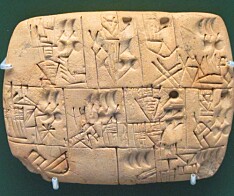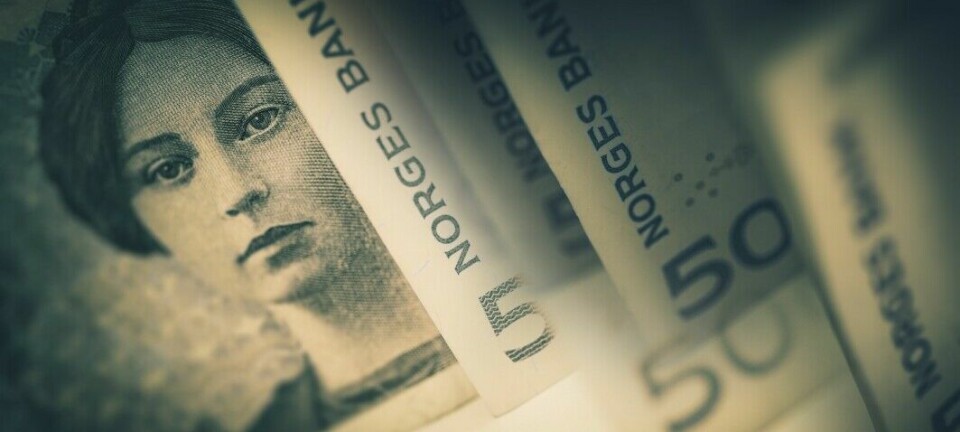
Buying and selling credit is worth thousands of times as much as the ‘real’ economy
Credit is about ‘time’, ‘trust’ and ‘faith’, economic historians say.
In faith lies the key to credit. This may sound a bit abstract. A bit philosophical.
“Credit is very philosophical!” Ola Innset exclaims.
Innset is an economic historian at BI Norwegian Business School.
In short, credit is a form of financial trust that allows you to get a loan or buy goods, without paying immediately.
That words such as ‘trust’ and ‘faith’ are closely associated with credit is not accidental: the word is derived from the Latin credere, which means ‘to believe’.
“When we get credit, for example by deferring a payment, it is based on a belief from the person giving the credit that you will actually pay at a later time,” Innset said.
“Credit is therefore about time: You can settle a deal with something you don't have now, but which you will probably have later,” he said.
Time, before and after
Ever since ancient times, people have engaged in forms of credit and loans. You can read more about that in this sciencenorway.no article about interest. Interest and credit are very closely linked because interest is the price of credit.
Even in ancient times, people decided that it was a good idea to keep books. Small mountains of ancient clay tablets have survived to our time from ancient Mesopotamia, and most of them are about money, not art and history. Some of them say that the clay tablet is ‘ worth’ so and so much grain or silver.
“And as more and more transactions took place on paper and were not purely physical, it is only creativity, and sometimes legislation, that sets limits on how far into the future one can speculate,” Innset said.
This may sound obvious to us, listening with modern ears. But embedded in this concept is actually a revolutionary thought about how we look at the world.
“Slightly simplified, we can say that a new view of the future opened up new opportunities in the present. And there is a certain connection between the rise of credit and secularization, meaning that people in the modern world became less religious,” Innset said.
“When the future is no longer understood as given by a divine providence, it also becomes possible to influence it and to speculate on possible outcomes to a far greater extent,” he explained.
Credit now
After the world of credit began to accelerate from the 16th century onwards, credit has taken on enormous importance.
“After re-regulation and ‘liberalization’ since the 1970s and 80s, the financial economy, meaning the many markets for buying and selling various forms of credit, has become worth many thousands of times as much as the ‘real’ economy,” Innset said.
Researchers have called this process "financialization". In 2008, the entire market crashed, and since then, including with the coronavirus pandemic, governments have been pouring money into the financial economy to keep it afloat. Since 2020, the coronavirus alone has led to the financial markets being fed approximately NOK 110 billon.
“These markets for credit, which have become very important for the entire global economic system to function, are thus kept alive knowing that even more credit can be pumped into them, and many are critical of that,” Innset said.
Rather than using tax money, central banks create money with a few keystrokes.
“Some will claim that governments are now taking out loans from the future, which we have to pay back later, but we humans cannot really borrow anything from the future any more than we can borrow from other planets,” Innset said.
“It’s just us, here and now, but money and loans in an increasingly abstract credit system make us do some things rather than others. That is why money, and credit, are a social technology, they offer a way of organizing we who are here and now, with a constant view towards the future,” Innset said, before ending on a philosophical note:
“What you really believe in when you enter into some kind of credit agreement is the monetary system itself. And that requires a certain amount of faith, since money isn't really real,” he said.
Translated by Nancy Bazilchuk
———
Read the Norwegian version of this article at forskning.no
------

































